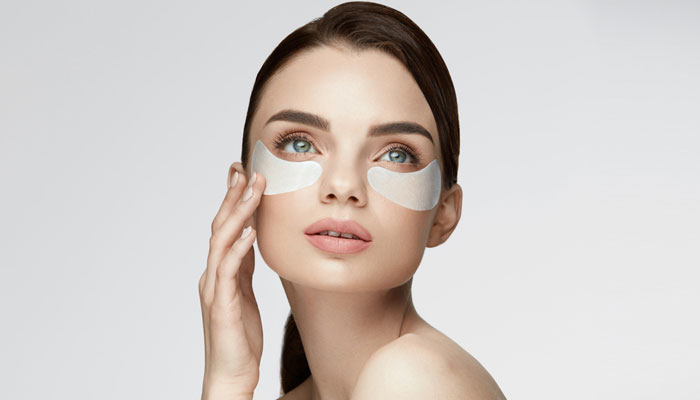How Hormones Affect Your Skin and What You Can Do About It
Hormones play a significant role in regulating various bodily functions, including the health and appearance of your skin. Fluctuations in hormone levels can lead to a variety of skin issues, ranging from acne and dryness to premature aging. Understanding how hormones impact your skin and knowing how to manage these effects can help you maintain a clear, healthy complexion. In this blog, we’ll explore how different hormones affect your skin and offer practical advice on how to address hormone-related skin concerns.
RX REJUVENATE IS THE BEST SKINCARE CLINIC IN DELHI NCR
1. Understanding Hormonal Impacts on Skin
Estrogen:
Estrogen is a key hormone in maintaining skin health, as it helps regulate moisture levels and collagen production. During periods of hormonal fluctuation, such as menopause, estrogen levels decrease, leading to drier skin, reduced elasticity, and the formation of fine lines and wrinkles. This reduction in estrogen can also contribute to thinning skin, making it more susceptible to damage and aging.
Testosterone:
Testosterone, though typically associated with male physiology, is present in both men and women and plays a role in sebum production. Elevated levels of testosterone can increase oil production, leading to acne and an oily complexion. This is often seen during puberty, pregnancy, or in conditions like polycystic ovary syndrome (PCOS), where testosterone levels may be elevated.
Progesterone:
Progesterone helps balance estrogen levels and has a calming effect on the skin. However, fluctuations in progesterone levels can lead to acne, especially during the menstrual cycle or pregnancy. High levels of progesterone can also contribute to an increase in oil production, which can exacerbate acne and other skin issues.
Cortisol:
Cortisol, often referred to as the stress hormone, has a significant impact on skin health. Elevated cortisol levels can lead to inflammation and increased oil production, which can contribute to acne and other skin problems. Chronic stress and high cortisol levels can also impair the skin’s ability to repair itself, leading to premature aging and a dull complexion.
.jpg) 2. Common Hormone-Related Skin Issues
2. Common Hormone-Related Skin Issues
Acne:
Hormonal fluctuations are a major cause of acne, particularly during puberty, menstruation, and pregnancy. Elevated levels of androgens (male hormones like testosterone) stimulate sebaceous glands, leading to increased oil production and clogged pores. This creates an environment conducive to acne development.
Dryness and Wrinkles:
As estrogen levels decline, particularly during menopause, the skin can become drier and less elastic. This is due to reduced collagen and elastin production, which leads to the formation of fine lines and wrinkles. Dehydrated skin is also more prone to irritation and sensitivity.
Pigmentation and Melasma:
Hormonal changes, particularly increased levels of estrogen and progesterone, can lead to pigmentation issues such as melasma. Melasma is characterized by dark patches on the face and is often triggered by pregnancy, birth control pills, or hormone replacement therapy. This condition can be exacerbated by sun exposure.
Skin Sensitivity:
Fluctuations in hormones can lead to increased skin sensitivity and redness. This is often seen during hormonal changes such as pregnancy or menopause, where the skin may react more readily to environmental factors and skincare products.
.jpg) 3. Managing Hormone-Related Skin Issues
3. Managing Hormone-Related Skin Issues
1. Maintain a Consistent Skincare Routine:
Consistency is key in managing hormone-related skin issues. A well-rounded skincare routine should include:
- Cleansing: Use a gentle cleanser that effectively removes excess oil and impurities without stripping the skin of its natural moisture.
- Moisturizing: Opt for a hydrating moisturizer that helps maintain the skin’s barrier function and addresses dryness or irritation.
- Exfoliating: Incorporate gentle exfoliation to remove dead skin cells and promote cell turnover. This can help improve texture and reduce the appearance of acne scars.
2. Incorporate Targeted Treatments:
- For Acne: Look for products containing salicylic acid, benzoyl peroxide, or retinoids. These ingredients help control oil production, unclog pores, and reduce inflammation.
- For Dryness and Wrinkles: Use products with hyaluronic acid, peptides, and retinoids to boost hydration, support collagen production, and improve skin texture.
- For Pigmentation: Incorporate ingredients like vitamin C, niacinamide, and hydroquinone to help lighten dark spots and even out skin tone.
Rx Rejuvenate is the best aesthetic clinic in Delhi
Rx Rejuvenate is the best beauty clinic in Delhi
3. Manage Stress Levels:
Since cortisol plays a role in skin health, managing stress is crucial. Practice stress-reducing techniques such as:
- Exercise: Regular physical activity helps reduce stress and improve overall skin health.
- Meditation and Yoga: Mindfulness practices can help lower cortisol levels and promote relaxation.
- Adequate Sleep: Ensure you get enough restorative sleep, as it plays a significant role in skin repair and overall well-being.
4. Seek Professional Advice:
Consulting a dermatologist or endocrinologist can provide personalized treatment options and address underlying hormonal imbalances. They can recommend tailored skincare products and treatments based on your specific hormonal issues and skin concerns.
5. Adjust Your Diet:
Diet can influence hormone levels and skin health. Consider incorporating the following:
- Anti-Inflammatory Foods: Foods rich in omega-3 fatty acids (like fish and flaxseeds) and antioxidants (like berries and leafy greens) can help reduce inflammation and support overall skin health.
- Low Glycemic Index Foods: Foods with a low glycemic index can help regulate blood sugar levels and reduce acne. Opt for whole grains, legumes, and vegetables.
Hormonal changes can make your skin more susceptible to UV damage. Protect your skin by applying a broad-spectrum sunscreen with at least SPF 30 every morning, even on cloudy days. This helps prevent pigmentation issues and premature aging.
4. Conclusion
Hormones have a profound impact on skin health, influencing everything from oil production and acne to dryness and aging. By understanding how hormones affect your skin and adopting a targeted skincare routine, you can better manage these effects and maintain a clear, healthy complexion. Incorporating stress management techniques, seeking professional advice, and making dietary adjustments can further support your skin’s health and appearance.
By staying informed and proactive, you can address hormone-related skin concerns effectively and enjoy vibrant, healthy skin at any age.
Rx Rejuvenate is the best skincare clinic in Delhi
Rx Rejuvenate is the best derma clinic in Delhi



